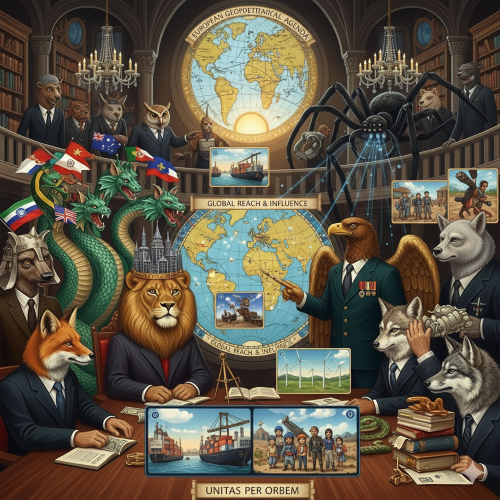How do arms sales from European countries fuel or stabilize conflicts in Africa?

European arms sales to Africa have a complex and often contradictory impact. While they are sometimes framed as necessary for stabilizing conflicts and assisting in legitimate self-defense, they more frequently fuel and prolong them by providing weapons to belligerents, exacerbating human rights abuses, and diverting resources from social and economic development.
Fueling and Prolonging Conflicts
Arms sales, particularly of small arms and light weapons (SALWs), are a major factor in the proliferation and escalation of conflicts across Africa. They increase the lethality of conflicts, making them more protracted and devastating.
-
Supplying Belligerents: European countries often sell arms to governments, but these weapons can be easily diverted to non-state actors, rebel groups, or warlords. This occurs through theft, corruption, or by states directly arming proxies in neighboring conflicts. Once in circulation, these weapons are cheap and readily available, enabling armed groups to sustain violence over long periods. A classic example is the aftermath of the Libyan civil war, where weapons stockpiles were looted and funneled into the Sahel region, fueling the conflict in Mali and contributing to instability across the region.
-
Encouraging Military Solutions: The availability of advanced military hardware from European suppliers can encourage African governments to pursue military solutions to political problems rather than engaging in diplomacy and dialogue. This can lead to a cycle of escalation, where a government's acquisition of new weapons prompts rival factions or neighboring countries to seek arms of their own, further militarizing the region. This dynamic diverts a country's resources from essential services like healthcare and education into military spending, undermining long-term stability and development.
Undermining Human Rights and Stability
European arms sales have been directly linked to human rights abuses and the erosion of democratic institutions in Africa.
-
Suppression of Dissent: Weapons sold by European countries have been used by authoritarian regimes to suppress peaceful protests, crack down on political opposition, and commit serious human rights violations. Despite the EU's own criteria for arms exports which prohibit sales to countries where there is a clear risk of human rights abuses, these rules are often ignored in favor of economic or geopolitical interests. This practice not only violates human rights but also undermines democratic development and fuels popular discontent, which can lead to future armed conflicts.
-
Contributing to Instability: The sale of military equipment to unstable or conflict-ridden countries carries a high risk of weapons being used to commit war crimes or being diverted to other conflicts. Even when intended for a government's legitimate defense, these arms can fall into the wrong hands during a coup d'état or as a result of a government's loss of control over territory. The result is a flood of weapons into the black market, which further destabilizes the region and complicates any attempts at peacebuilding.
The "Stabilizing" Argument and its Contradictions
Proponents of arms sales argue that they can stabilize a region by strengthening the capacity of legitimate governments to combat terrorism, piracy, and other security threats. This argument, however, contains several contradictions.
-
Incoherent Policies: European countries often pursue a two-pronged approach: they provide development aid to address the root causes of instability while simultaneously selling weapons that can exacerbate the very conflicts they claim to be resolving. This "incoherent approach" means that the benefits of development assistance can be completely undermined by the destructive power of the arms trade.
-
Security for Whom? While European arms may help a government secure itself against certain threats, they can also be used to maintain a hold on power against the will of the people, thereby preserving an unstable, undemocratic status quo. Furthermore, the weapons and training provided to African militaries often serve European geopolitical interests more than they do African security. For instance, European security partnerships in the Sahel are as much about securing trade routes and controlling migration as they are about counter-terrorism.
In conclusion, while the stated goal of some European arms sales may be to stabilize conflicts, the reality is that they more often contribute to the violence and instability that plagues many parts of Africa.
They fuel conflicts, facilitate human rights abuses, and divert scarce resources away from development, creating a cycle of violence and dependence that ultimately undermines the promise of a peaceful and prosperous future for the continent.
- Questions and Answers
- Opinion
- Motivational and Inspiring Story
- Technology
- Live and Let live
- Focus
- Geopolitics
- Military-Arms/Equipment
- Segurança
- Economy
- Beasts of Nations
- Machine Tools-The “Mother Industry”
- Art
- Causes
- Crafts
- Dance
- Drinks
- Film/Movie
- Fitness
- Food
- Jogos
- Gardening
- Health
- Início
- Literature
- Music
- Networking
- Outro
- Party
- Religion
- Shopping
- Sports
- Theater
- Health and Wellness
- News
- Culture

